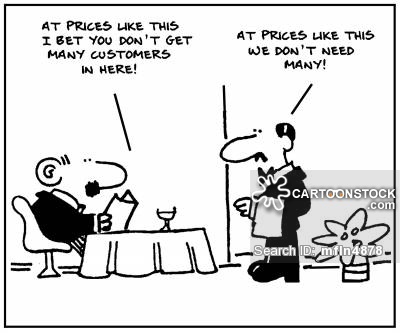Term 3: Week 3
Section outline
-
Learning Intentions

- Investigate ways in which businesses can price their products
- Explore examples of different pricing strategies and reasons for using each strategy.
- Explore the specific effect of changes in price on quantity sold and thus on profit.
- Can describe several key strategies for pricing products
- Can predict the effect of a price change on sales and thus profits.
Price
The price of o product sends strong messages to consumers. Would you buy a parachute in a sale at half price, or a perfume, for a valued friend, that was advertised as being low price, or petrol at a much higher price than competitors' prices?
Pricing strategies
- Cost-plus pricing - adding a percentage markup to the estimated unit cost.
- Penetration pricing - initial low price to encourage customers to try the product (but could send the message of low quality).
- Skimming - high price until competition forces it down
- Competitive pricing - in line with, or a certain percentage above, competitors' prices.
- Psychological pricing - appears closer to customer's perceived value (eg $3.99)
- Prestige price - to promote a luxury image (eg perfume)
- Price discrimination - price for the same product varies for different customer groups (eg students, off-peak travel).
- Loss leader - very low price attracts customers into the shop to buy other products at 'normal' prices.
- Promotional pricing - low price for a short time to renew customer interest or clear unwanted stock.
- Range pricing - prices of similar types of product kept within limits.
In your group, discuss which price strategy is being used in each of the examples below:
- A watch that’s very similar to others sold in the shops
- A toy sold for $1.95
- A tour operator sells holidays during the school holidays as well as at other times.
- A new brand of washing powder is launched - there are several similar ones already available
- A supermarket wants to cover the cost of vegetables and make a 100% profit as well.
- A new mobile phone has been developed that has extra features compared to the competition
